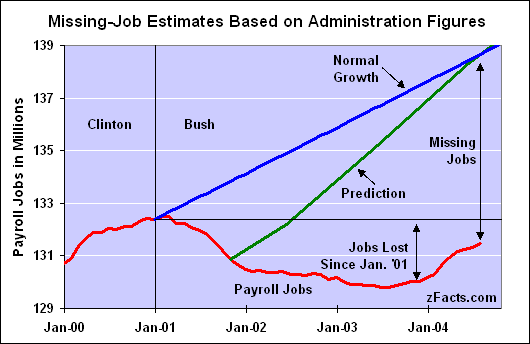John Eisenhower’s Take on the Election
Why I will vote for John Kerry for President
By JOHN EISENHOWER
THE Presidential election to be held this coming Nov. 2 will be one of extraordinary importance to the future of our nation. The outcome will determine whether this country will continue on the same path it has followed for the last 3½ years or whether it will return to a set of core domestic and foreign policy values that have been at the heart of what has made this country great.
Now more than ever, we voters will have to make cool judgments, unencumbered by habits of the past. Experts tell us that we tend to vote as our parents did or as we “always have.” We remained loyal to party labels. We cannot afford that luxury in the election of 2004. There are times when we must break with the past, and I believe this is one of them.
As son of a Republican President, Dwight D. Eisenhower, it is automatically expected by many that I am a Republican. For 50 years, through the election of 2000, I was. With the current administration’s decision to invade Iraq unilaterally, however, I changed my voter registration to independent, and barring some utterly unforeseen development, I intend to vote for the Democratic Presidential candidate, Sen. John Kerry.
The fact is that today’s “Republican” Party is one with which I am totally unfamiliar. To me, the word “Republican” has always been synonymous with the word “responsibility,” which has meant limiting our governmental obligations to those we can afford in human and financial terms. Today’s whopping budget deficit of some $440 billion does not meet that criterion.
Responsibility used to be observed in foreign affairs. That has meant respect for others. America, though recognized as the leader of the community of nations, has always acted as a part of it, not as a maverick separate from that community and at times insulting towards it. Leadership involves setting a direction and building consensus, not viewing other countries as practically devoid of significance. Recent developments indicate that the current Republican Party leadership has confused confident leadership with hubris and arrogance.
In the Middle East crisis of 1991, President George H.W. Bush marshaled world opinion through the United Nations before employing military force to free Kuwait from Saddam Hussein. Through negotiation he arranged for the action to be financed by all the industrialized nations, not just the United States. When Kuwait had been freed, President George H. W. Bush stayed within the United Nations mandate, aware of the dangers of occupying an entire nation.
Today many people are rightly concerned about our precious individual freedoms, our privacy, the basis of our democracy. Of course we must fight terrorism, but have we irresponsibly gone overboard in doing so? I wonder. In 1960, President Eisenhower told the Republican convention, “If ever we put any other value above (our) liberty, and above principle, we shall lose both.” I would appreciate hearing such warnings from the Republican Party of today.
The Republican Party I used to know placed heavy emphasis on fiscal responsibility, which included balancing the budget whenever the state of the economy allowed it to do so. The Eisenhower administration accomplished that difficult task three times during its eight years in office. It did not attain that remarkable achievement by cutting taxes for the rich. Republicans disliked taxes, of course, but the party accepted them as a necessary means of keep the nation’s financial structure sound.
The Republicans used to be deeply concerned for the middle class and small business. Today’s Republican leadership, while not solely accountable for the loss of American jobs, encourages it with its tax code and heads us in the direction of a society of very rich and very poor.
Sen. Kerry, in whom I am willing to place my trust, has demonstrated that he is courageous, sober, competent, and concerned with fighting the dangers associated with the widening socio-economic gap in this country. I will vote for him enthusiastically.
I celebrate, along with other Americans, the diversity of opinion in this country. But let it be based on careful thought. I urge everyone, Republicans and Democrats alike, to avoid voting for a ticket merely because it carries the label of the party of one’s parents or of our own ingrained habits.
John Eisenhower, son of President Dwight D. Eisenhower, served on the White House staff between October 1958 and the end of the Eisenhower administration. From 1961 to 1964 he assisted his father in writing “The White House Years,” his Presidential memoirs. He served as American ambassador to Belgium between 1969 and 1971. He is the author of nine books, largely on military subjects.
 Our president seemed to feel it a major issue that Kerry “forgot” Poland in the debate. Apparently he conveniently “forgot” about how Poland feels also.
Our president seemed to feel it a major issue that Kerry “forgot” Poland in the debate. Apparently he conveniently “forgot” about how Poland feels also. 

